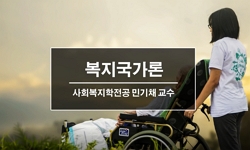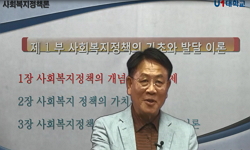The Korean economy in the last half century can be characterized by growth-only policy ignoring income distribution and social welfare. However, further economic growth has become very hard since 1997 because of the tendency toward polarization of the...
http://chineseinput.net/에서 pinyin(병음)방식으로 중국어를 변환할 수 있습니다.
변환된 중국어를 복사하여 사용하시면 됩니다.
- 中文 을 입력하시려면 zhongwen을 입력하시고 space를누르시면됩니다.
- 北京 을 입력하시려면 beijing을 입력하시고 space를 누르시면 됩니다.
https://www.riss.kr/link?id=A82512299
- 저자
- 발행기관
- 학술지명
- 권호사항
-
발행연도
2010
-
작성언어
-
-
주제어
복지국가 ; 소득재분배 ; 최저임금 ; 국민연금 ; 국민기초생활보장제도 ; welfare state ; income redistribution ; minimum wages ; public pension ; national minimum
-
KDC
321
-
등재정보
KCI등재
-
자료형태
학술저널
- 발행기관 URL
-
수록면
113-154(42쪽)
- 제공처
-
0
상세조회 -
0
다운로드
부가정보
다국어 초록 (Multilingual Abstract)
tendency toward polarization of the economy and the difficulty of creating jobs. Still many people in Korea believe in growth-only policy and they tend to think pursuing welfare dampens economic growth. They prefer small government. This paper tries to show this is not true. Korean welfare state, if anything is such a poor and ineffective one that it has much less redistributive effect than that of other welfare states. For case studies this paper examines the minimum wage, public pension, and public assistance in Korea. The sizes of subsidy to the needy of these policies are so small and there are many holes in the social safety nets. Previous studies have found the roots of poor welfare state in Korea in the Confucian tradition and the right wing politics. But we may add the elements of political dictatorship which hardly neeeded the support from the mass, and the possibilities of corruption in economic budget as compared to welfare budget. These factors seem to have made Korea a peculiarly poor and ineffective welfare state. As growth-only is no longer viable, an alternative route of development strategy taking into full account of welfare and distribution seems to be almost imperative at the current stage of Korean capitalism.
The Korean economy in the last half century can be characterized by growth-only policy ignoring income distribution and social welfare. However, further economic growth has become very hard since 1997 because of the
tendency toward polarization of the economy and the difficulty of creating jobs. Still many people in Korea believe in growth-only policy and they tend to think pursuing welfare dampens economic growth. They prefer small government. This paper tries to show this is not true. Korean welfare state, if anything is such a poor and ineffective one that it has much less redistributive effect than that of other welfare states. For case studies this paper examines the minimum wage, public pension, and public assistance in Korea. The sizes of subsidy to the needy of these policies are so small and there are many holes in the social safety nets. Previous studies have found the roots of poor welfare state in Korea in the Confucian tradition and the right wing politics. But we may add the elements of political dictatorship which hardly neeeded the support from the mass, and the possibilities of corruption in economic budget as compared to welfare budget. These factors seem to have made Korea a peculiarly poor and ineffective welfare state. As growth-only is no longer viable, an alternative route of development strategy taking into full account of welfare and distribution seems to be almost imperative at the current stage of Korean capitalism.
동일학술지(권/호) 다른 논문
-
Presidential Term Limits and Policy Choice
- 한국경제발전학회
- Jinwon Ahn
- 2010
- KCI등재
-
- 한국경제발전학회
- 황상인(Hwang Sang In)
- 2010
- KCI등재
-
- 한국경제발전학회
- 최윤재(Yoonjae Choe)
- 2010
- KCI등재
-
우리나라 중고령자의 은퇴경로 유형과 은퇴 후 소득 비교
- 한국경제발전학회
- 석상훈(Seok Sang-hun)
- 2010
- KCI등재





 스콜라
스콜라






